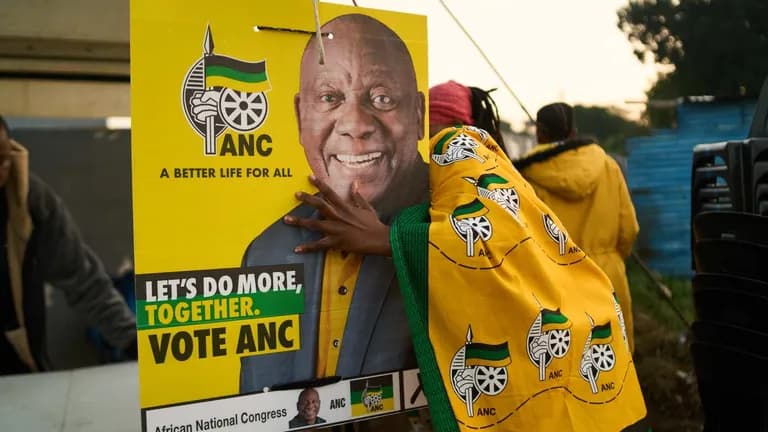Summary
ANC has dominated South African politics since winning in the first post-apartheid elections 30 years ago. The party’s vote share has fallen by a few percent in every election since 2004. But in this election, the gradual decline in ANC support over the last 20 years grew more dramatic.
President Zuma was forced to resign from the presidency in 2018, and was convicted in 2021 of failing to present himself at a corruption trial against him. The populist leader has accused his successor, President Cyril Ramaphosa, of being behind his legal troubles. Now Zuma has inflicted a major defeat on his rival, who is likely to face pressure from some in his party to resign.
The ANC came fourth with 9% of the vote, also affected by larger-than-predicted support for the MK party. The ANC could also align with the MK, giving Zuma influence in the government, or with the radical left-wing Economic Freedom Fighters.

The article says it is good that ANC might face some accountability compared to simply winning majority after majority for decades. While I can agree there is also an element of non-accountability that can happen with a coalition government. Both parties in the coalition will simply blame their co-party for all the problems.
Republican democracy is very hard to structure in a way that will hold people accountable in nearly any form. Accountability is a huge, nearly unsolved problem in practice for governments everywhere.
The point is accountability isn't going to happen. It never happens.
I like to make predictions. I hate to be pessimistic but I don't think anything majorly positive will be happening in South Africa any time soon.